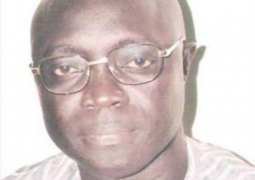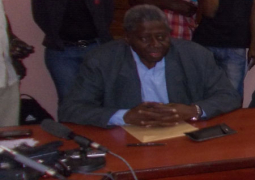Following investigations,The Point has gathered that during the course of last week alone over 7000 migrants from 20 different boats have either entered Italy or were rescued by European coast guards.
Such migrants via the Mediterranean included men, women, boys, girls and even babies - most of them finally arrived in Europe with the hope of ultimately settling down to start a new life.
However, EU countries such as Italy complained that there ‘should be a quota system’ for other EU member states to accept some of the migrants, as they are ‘overwhelmed’ with the number of people mainly from the Middle East and Sub Saharan Africa.
But their hopes and aspirations have been dashed after the UK Home Office publicly announced that it will ‘refuse such proposal’ and that the plan known as ‘EU Emergency Resettlement Programmer’ will ‘not be accepted’.
Furthermore, the UK insisted that it may ‘not take part in any permanent EU system’ that is meant to relocate asylum seekers using the route into Europe.
Human rights groups and legal analysts are currently engaging with the government to ‘reconsider such decision’, but are quick to commend the new cabinet under David Cameron for ‘quickly proving or contributing’ a helicopter carrier, known as HMS Bulwark, with the mission of search and rescue. This also includes several experts to try and save migrants’ lives who are usually abandoned by smugglers.
While the Refugee Council keeps saying that it is a ‘shame’ for the government to refuse accepting the migrant as soon as they enter the EU, other bodies are calling on states where such migrants are coming from to ‘respect fundamental human rights of their citizens, and create jobs and opportunities for them to stay home and have a decent living conditions and stop blaming others for their own failures’.
This correspondent spoke to both Gambians and Senegalese who arrived in Italy recently, but was also astounded that some of them entered over a year ago waiting for resettlement. Most of the Senegambians also maintained that they are not even ‘contemplating’ going back home.
Omar Sonko from Serekunda said: ‘I finished high school with excellent grades and always do the right thing in order to get employment...However my condition remains the same… I suffered enough with my family…Now I better die abroad than to return home’.
Mamadou Sy, from Thies region in Senegal, said: ‘I am a new comer; I was not expecting it like this but I am strong...So far they are looking after us well... So let’s wait and see what happens next’.
Nonetheless, the debate, negotiation and discussion regarding how to deal with the migrants is escalating in Europe. Both leaders and the media have contrasting and divergent viewpoints. Some are very much sympathetic and compassionate with the issue, while others are clamoring for an ‘outright deportation to their country of origin’.
The debate continues, while Omar and Mamadou hope for the best.



